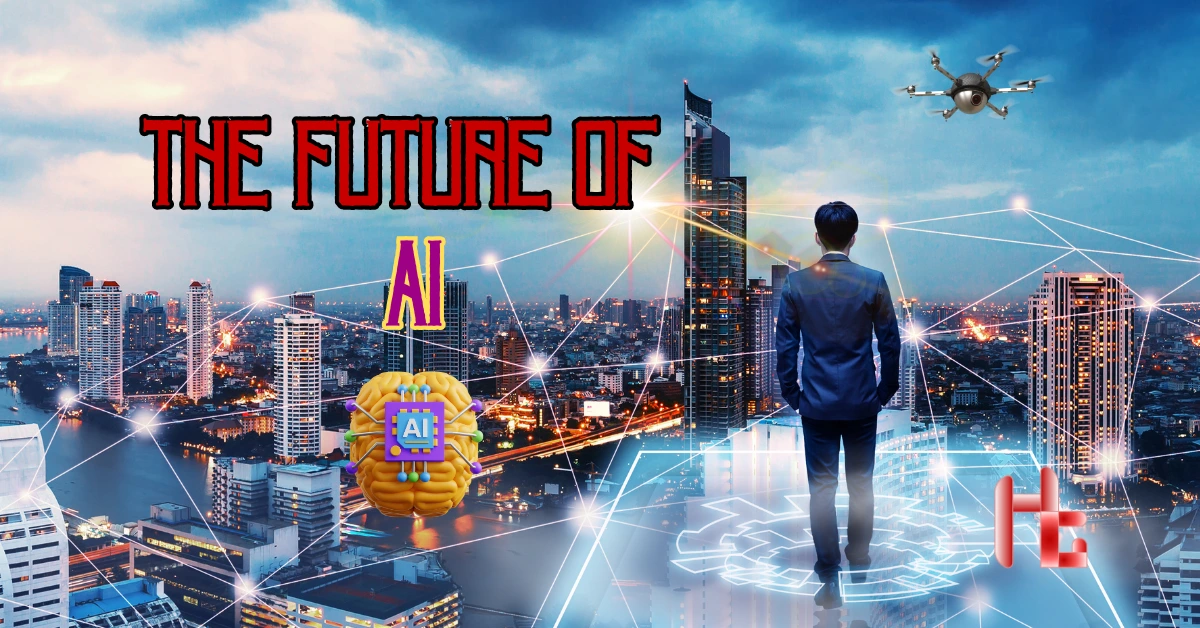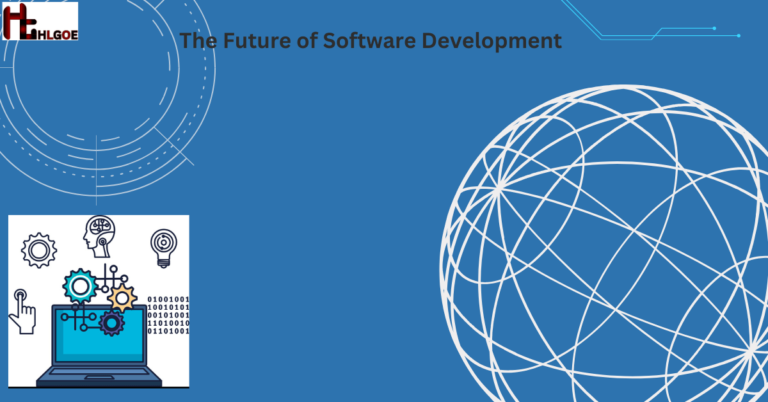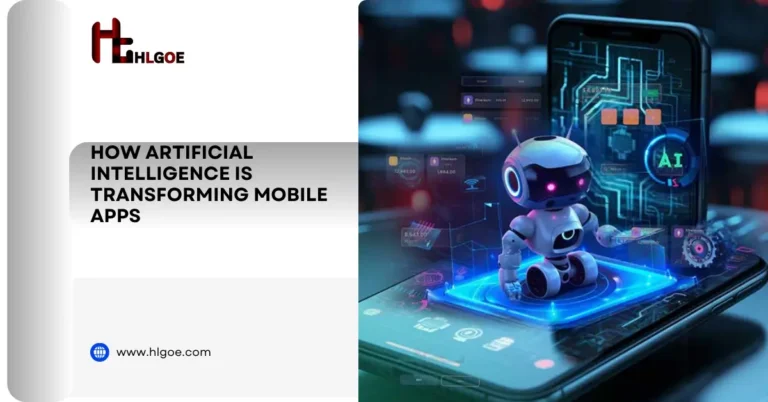Preparing for an AI Powered Future – Skills You Need to Learn Today
As we step further into the 21st century, one undeniable truth is becoming clear: the AI Powered Future of work will be driven by Artificial Intelligence (AI). With AI technologies continuously advancing, the nature of work and the skills required to thrive are evolving at an unprecedented pace. In this rapidly changing landscape, learning AI skills has become crucial for individuals who want to stay relevant and competitive in their careers.
AI is no longer just a futuristic concept; it is here, transforming industries from healthcare and finance to education and entertainment. As AI becomes increasingly integrated into business operations, job roles are shifting, and many traditional tasks are being automated. This shift demands that workers adapt by learning new, more advanced skills that complement the capabilities of AI. Whether you’re a software developer, a marketer, or a business analyst, understanding how AI works and acquiring the necessary AI skills will be pivotal in the coming years.
But what exactly are the skills that will be required in this AI-driven world? While the specifics can vary depending on the field you work in, there are core competencies that everyone should begin focusing on today. Programming, data analysis, and problem-solving are at the forefront of the skills that will define success in the future of work. If you’re serious about navigating the evolving job market, learning AI skills is no longer optional—it’s essential.
The good news is that AI skills are not just for tech professionals. The increasing pervasiveness of AI means that individuals in every industry will need to develop a basic understanding of how these technologies work. In fact, AI literacy is becoming as fundamental as reading, writing, and arithmetic in today’s workforce. As AI continues to permeate all sectors, the demand for skilled professionals who can leverage its power will only grow.
In this post, we’ll explore the key skills that will help you thrive in the AI-powered future. From programming languages that enable you to work directly with AI systems to data analysis techniques that help you interpret AI-generated insights, we’ll cover the essential tools you need to stay ahead. If you’re ready to future-proof your career, let’s dive into the skills you need to develop today.
Key Skills for Thriving in an AI-Driven World
Get me right Today, as we explain the best part you need to know;
Programming: The Backbone of AI
At the core of most AI technologies is programming. If you’re looking to work directly with AI systems or develop AI-driven applications, mastering programming is a must. Languages like Python, R, and JavaScript are heavily used in AI development, particularly Python, due to its simplicity and vast libraries designed for machine learning and data science.
Learning programming not only helps you understand how AI works but also empowers you to interact with AI tools and even develop your own algorithms. Whether you’re building machine learning models or working on data automation, programming is the foundational skill that will open doors in AI development, deployment, and optimization.
Data Analysis: The Language of Decision Making
Data is the lifeblood of AI systems. For AI to provide meaningful insights or predictions, it must first process and analyze vast amounts of data. Understanding how to collect, clean, and analyze data is a vital skill for anyone working with AI technologies. This means being proficient in data analysis tools and techniques such as SQL, Excel, and data visualization software like Tableau or Power BI.
In addition, learning statistical methods and understanding how to interpret AI-generated data will allow you to make more informed decisions. As AI increasingly influences strategic business decisions, the ability to analyze data effectively will set you apart from others in your field.
Problem Solving: Adapting to AI Challenges
AI technologies excel at automating repetitive tasks and identifying patterns in large datasets, but human creativity and problem-solving abilities are still irreplaceable. In an AI-powered future, the ability to think critically and creatively about how to use AI to solve complex problems will be invaluable.
Problem-solving skills are necessary to identify areas where AI can be applied effectively, troubleshoot issues, and optimize AI-driven processes. The ability to understand the challenges and limitations of AI and make strategic decisions based on this understanding is essential for success in the future of work. Emphasizing these skills ensures that you won’t just be another operator of AI systems but also someone who can guide AI’s application in novel and productive ways.
The Intersection of Human Skills and AI
While technical skills like programming and data analysis are undeniably important, there are human skills that will complement AI and make workers more effective in an AI-driven environment. These include:
- Critical Thinking: AI can process data, but humans are needed to interpret that data within a larger context. Critical thinking will be essential for analyzing AI-generated outcomes and making sound judgments.
- Emotional Intelligence: As AI systems take on more of the technical, repetitive tasks, humans will be required to lead, collaborate, and make empathetic decisions. These human-centric skills will remain in demand even as AI continues to grow.
- Creativity: AI can generate solutions based on data, but it’s human creativity that drives innovation. Combining AI’s power with creative problem-solving will unlock new opportunities in almost every field.
How to Start Learning AI Skills
The first step in acquiring AI skills is recognizing the areas that will have the most impact on your career. Here’s how to start:
- Practical Steps for Learning Programming: Begin with basic coding courses, especially in Python, which is the most widely used language in AI development. Websites like Codecademy, Udemy, and Coursera offer beginner to advanced-level programming tutorials.
- Resources for Data Analysis and AI Tools: Learn the essentials of data analysis through online platforms. Coursera and edX offer courses that will teach you both basic and advanced data analysis techniques. Tools like Python’s Pandas, NumPy, and TensorFlow can help you get hands-on experience with data manipulation and machine learning.
- Building a Problem-Solving Mindset: To sharpen your problem-solving skills, practice working on real-world problems. Participate in coding challenges on platforms like LeetCode and Kaggle. Also, working on team projects or open-source projects can help you develop practical AI solutions and improve your decision-making process.
Preparing for the Future of Work: A Lifelong Learning Approach
As AI technologies evolve, so must your skills. The future of work is not about mastering a specific tool or technique—it’s about being adaptable and committed to lifelong learning. By continually updating your knowledge and skill set, you’ll be able to stay ahead of AI trends and leverage them effectively in your career.
To succeed in this rapidly changing landscape, it’s essential to keep pushing your boundaries. Take online courses, attend workshops, read the latest AI research papers, and engage with the AI community through forums and social media.
Advantages and Disadvantages of Preparing for an AI Powered Future
As with any major technological shift, there are both advantages and disadvantages to preparing for an AI-powered future and learning AI skills. While the benefits are substantial, it’s equally important to be aware of the challenges you might face as you venture into this evolving field.
Advantages
- Increased Career Opportunities and Job Security
One of the most significant advantages of acquiring AI skills is the increased job opportunities that come with it. As industries continue to embrace AI, there will be a growing demand for skilled professionals who understand how to leverage these technologies. With expertise in AI, you’ll have the ability to work across diverse fields—from tech and healthcare to finance and retail—ensuring that your career remains both relevant and secure in an increasingly AI-dominated job market. - Higher Earning Potential
The demand for AI specialists is soaring, and companies are willing to pay a premium for employees who can develop, implement, and optimize AI technologies. Roles such as AI engineers, data scientists, and machine learning specialists often come with higher salaries compared to other fields. By gaining proficiency in AI skills, you significantly increase your earning potential. - Enhanced Problem-Solving and Efficiency
AI can automate repetitive tasks, freeing up your time for more complex, value-added work. Understanding how to integrate AI into your workflow enables you to work smarter and more efficiently. Whether it’s analyzing large datasets, automating decision-making processes, or building intelligent systems, AI can help you unlock productivity gains and achieve results faster than ever before. - Staying Ahead in the Competitive Job Market
As the future of work becomes more AI-centric, possessing AI skills will be a key differentiator. The ability to understand and utilize AI technologies will make you a more competitive candidate in the job market, helping you stand out from others who may lack these critical skills. Moreover, companies are looking for employees who can bridge the gap between technical AI expertise and business needs, making AI skills even more valuable. - Empowerment Through Knowledge
AI isn’t just for tech experts; it’s becoming a foundational tool in many industries. Gaining AI skills empowers you to make informed decisions, whether you’re a business leader, a healthcare professional, or a teacher. You’ll be equipped to leverage AI for better decision-making, solve complex challenges, and drive innovation in your field.
Disadvantages
- The Learning Curve
One of the main challenges of acquiring AI skills is the steep learning curve. If you’re new to programming, data analysis, or machine learning, the initial stages can be overwhelming. Mastering languages like Python or tools like TensorFlow takes time, effort, and persistence. However, with consistent learning and practice, this challenge can be overcome. - Over-reliance on AI
While AI has the potential to significantly enhance productivity, there’s a risk of becoming overly reliant on automated systems. If AI is used without proper oversight or critical thinking, it could lead to suboptimal decisions. For instance, relying on AI-generated predictions without understanding the underlying data or algorithms may lead to incorrect conclusions. Balancing AI’s strengths with human judgment and creativity is essential. - Job Displacement and Skill Gaps
While AI is expected to create new jobs, it may also displace certain roles. Jobs that involve routine, repetitive tasks are increasingly at risk of automation, such as those in manufacturing, data entry, or customer service. For workers in these fields, transitioning to more AI-centric roles may require extensive retraining, which can be costly and time-consuming. Moreover, there’s a need for upskilling the existing workforce to fill the skill gaps that AI will create. - Ethical and Bias Concerns
AI systems are only as good as the data they’re trained on, and if the data used to train AI models contains bias, those biases can be reflected in the AI’s decisions. This raises significant ethical concerns, particularly in areas like hiring, criminal justice, and healthcare. As someone learning AI skills, it’s crucial to develop an understanding of ethical AI practices and how to minimize bias in machine learning models. - Fast-Paced Technological Changes
The field of AI is evolving rapidly, and what you learn today may be outdated tomorrow. Continuous learning and staying updated with the latest developments is necessary, which can feel overwhelming. However, by engaging in continuous education and networking within the AI community, you can keep your skills fresh and relevant in this ever-changing landscape.
Conclusion: Ready for the AI Powered Future
Preparing for an AI-powered future requires a combination of technical skills, adaptability, and a forward-thinking mindset. While the advantages of acquiring AI skills—such as career growth, job security, and the ability to work more efficiently—are undeniable, it’s also important to be aware of the potential challenges, such as the steep learning curve, ethical considerations, and the risk of job displacement.
By learning AI skills today, you are setting yourself up for success in the rapidly evolving landscape of work. Whether through programming, data analysis, or problem-solving, gaining AI expertise will enable you to not only remain relevant in your field but also take advantage of the new opportunities that AI will continue to create.
The future of work is AI-driven, and those who invest in learning AI skills now will be the leaders, innovators, and thinkers of tomorrow. Start learning today, and be ready to embrace the possibilities of an AI-powered future.







